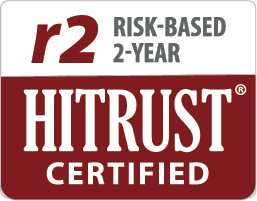LuxSci and StepAhead Partner to Protect Patient Data
Thursday, November 17th, 2022Boston, MA- November 2022 – LuxSci, a provider of HIPAA-compliant email services, is pleased to announce a new partnership with StepAhead, a software company focused on protecting healthcare data. By partnering with LuxSci, StepAhead helps healthcare technology organizations protect sensitive data so they can utilize it in ways that do not compromise patient privacy.
“LuxSci is thrilled to work with StepAhead. Their unique approach to data security and patient privacy is a perfect complement to LuxSci’s email encryption technology. By partnering with StepAhead, we can support our enterprise technology customers as they develop the solutions that will change the future of healthcare delivery for the better,” said Heather Clark, Vice President of Partnerships at LuxSci.
The healthcare ecosystem is rapidly changing, and digital innovation is essential to serve the needs of patients. However, digital tools introduce risk to sensitive data like protected health information. The partnership allows LuxSci and StepAhead to help healthcare technology companies address the complex data security and compliance questions that arise during digital transformation.
“The synergies between our two companies and the complementary security solutions we offer, provide a powerful combination for healthcare organizations. LuxSci owns the space where movement of sensitive data is a necessary business process by applying their encryption technology to keep that data safe. StepAhead provides tools to further leverage that data, in an anonymized form with the highest level of utility, so it can be distributed freely without fear of breach. This helps expand the value of the sensitive data without increasing the risk profile for all situations where the original sensitive data is not necessary,” said Kurt Ring, Co-Founder and VP of Sales at StepAhead.
StepAhead’s innovative Tarmiz technology offers a new model for protecting PHI with targeted data anonymization. This process enables organizations to maintain the integrity and authenticity of their native data without being exposed to unnecessary risk or undesirable outcomes.
LuxSci provides secure email solutions to help healthcare organizations meet compliance requirements and protect patient data. LuxSci’s SecureLine encryption technology helps healthcare providers reduce risk profiles while providing easy-to-use email tools.
The partnership between LuxSci and StepAhead will help further expand the security around sensitive data and provide additional options for organizations looking to utilize that data in the most effective and safest ways possible. To learn more about SecureLine visit www.luxsci.com and for more information on Tarmiz visit https://stepahead.dev/learnmore/.






